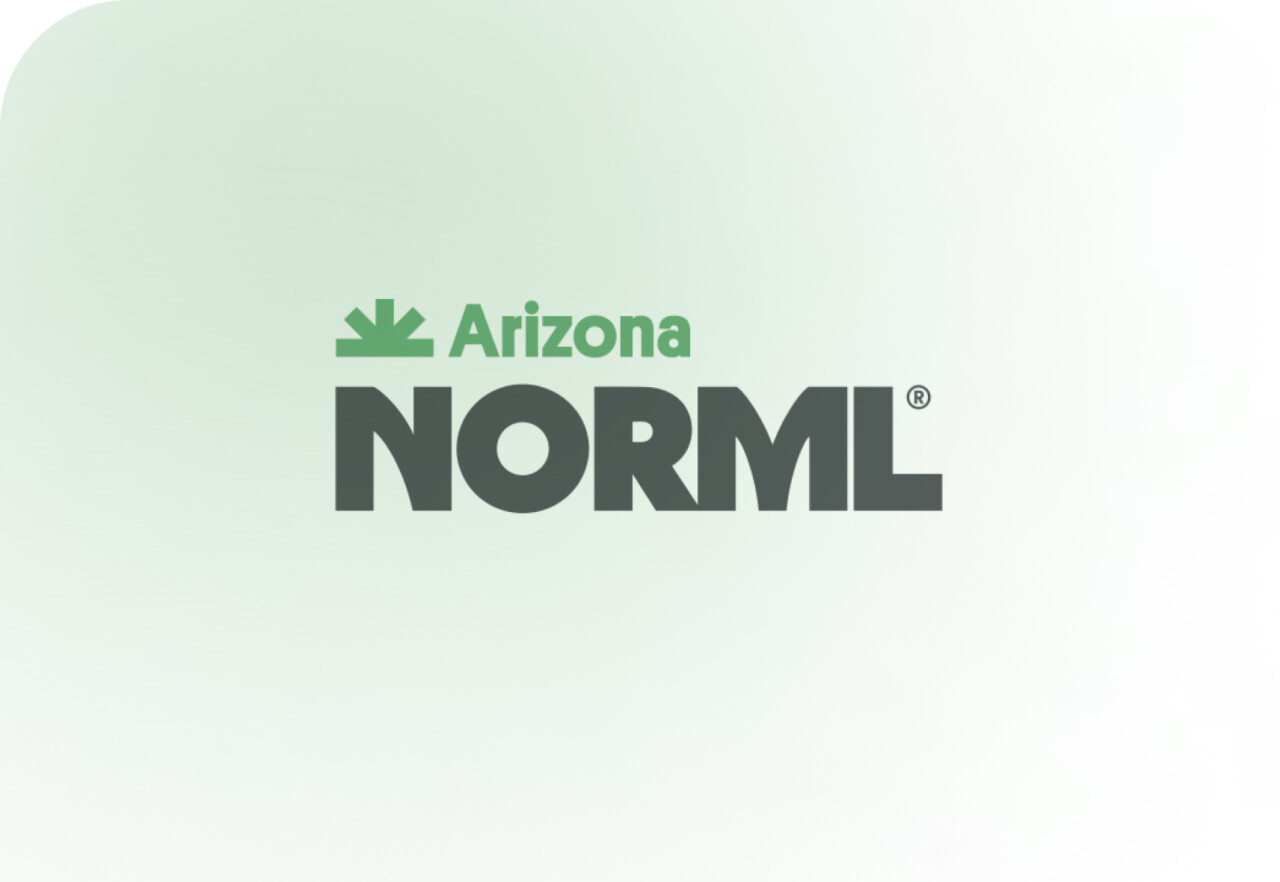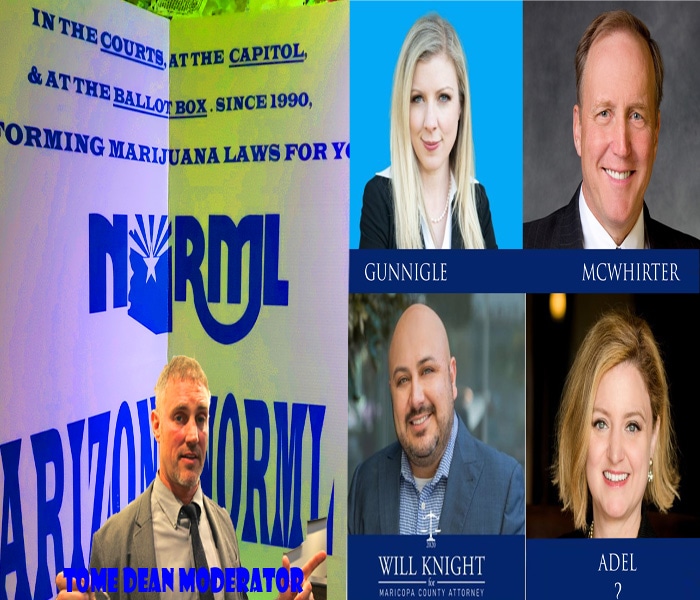(A Monthly Update on NORML News from Around the Nation)
One month into the 2017 legislative sessions at state capitols around the country and NORML is knee-deep in cannabis legislation from sea to shining sea. “Every state has something marijuana happening this year,” said national chapter coordinator and outreach director, Kevin Mahmalji during the organization’s monthly conference call, Feb. 18. The organization’s main purpose in the early part of each year has been directing state and local chapters to focus activism at their state legislatures. This month, the conference call opened with updates from the Virginia, Arizona, and Texas NORML chapters on their recent lobby days.
Hosting the call, Kevin Mahmalji acknowledged many people find the actual process of citizen lobbying very uncomfortable, so he appreciated people’s efforts and Virginia’s efforts this year deserved recognition. In addition to their lobby day, Virginia NORML hosted a had a massive event, the Virginia Cannabis Conference on Sunday Jan. 29. The conference featured several NORML leaders, including a keynote speech from “Radical Russ” Bellville, and panel discussions featuring Jenn Michelle Pedini, executive director of Virginia NORML, national NORML political director Justin Strekal and Kevin Mahmalji.
The conference came the week after the Virginia senate voted down two decriminalization bills, but also decided to approve an expansion of cannabis oil usage for medical patients, and moved to stop suspending drivers’ licenses over marijuana charges. The cannabis oil bill, SB1027, is now on the governor’s desk awaiting approval. Looking ahead VA-NORML is also supporting a medical marijuana bill, HB1637. National NORML has action alerts for the drivers’ license and cannabis oil bills.
In comparison, Arizona NORML’s lobby day was modest at best. The AZ chapter’s activities that day were supposed to focus on HB2313, a bill to create a legislative study committee to review the Arizona Medical Marijuana (AMMA). The bill was scheduled for committee hearing that day, but pulled from the agenda at the last minute. Instead, AZ state chapter director, Mikel Weisser, landed a meeting with AZ’s Speaker of the House, J.D. Mesnard, (LD-17) and discussed multiple pieces of pending legislation.
While most of Arizona bills regarding cannabis, both for and against, are already dead in the water, Mesnard was open to discussion on the active ones. One bill of particular interest was newly filed, HB2400, a bill to extend state issued medical cards from 1 to 5 years, written by medical card patient, Rep. Pamela Powers-Hannley (LD-9). Based on the discussion with AZ-NORML, Mesnard assigned the stalled bill to the House Health Committee.
This was the first time in memory, an AZ state speaker has done anything at the request of a marijuana activist. Currently national NORML has action alerts supporting two piece of AZ legislation, HB2002, a stalled decriminalization bill, and SB1337, a hemp bill awaiting a senate vote after sailing through 2 committees.
But both of those activist days of action were minor next the newest news coming out of the Lone Star State. The rising star of NORML’s state-level advocacy program, Texas NORML enjoyed gigantic success with the first of their 2017 lobby days, Feb. 8th. Coordinating with local NORML chapters around the state including powerhouse DFW NORML, the state chapter has been creating massive citizen activism events since 2011.
In a state that saw over 60,000 arrests last year, this year TX NORML brought out 375 people from around the state. The event followed months of planning and promotion and required scheduling of charter buses from around the states. The day before a team of TX-NORML staffers flyered every legislative office with info about the rally and position papers on pending legislation. The event, coordinated with Texans for Responsible Marijuana Policy featured lobby training and break downs of the bills in play, in addition to a rally and office meetings with legislators and their staff. All 31 state senators had at least one constituent come to Austin to discuss marijuana reform. “Some had as many as 20!” Jax Finkel, TX chapter state director laughed.
The phenomenal success at the capitol generated major media as well. “The event was very well covered, appearing in 20 different news stories,” Finkel explained. The lobby day was highlighted in the Texas media the same week Houston’s Harris County DA, Kim Ogg, announced her office and local law enforcement will no longer be arresting people for possession of anything under 4 ounces. Though, some condemned the move as creating a “marijuana sanctuary city,” Finkel assured the attitude at the capitol was supportive of the Harris County decision and it sparked many discussions.
The biggest pushback comes from East Texas where conservative traditions date back nearly 200 years. Finkel acknowledged, “The opposition is realizing we are winning so they’re starting to speak up even more.” Still Jax contends that over the years, the attitudes of legislators have softened. While many still see medical marijuana as a slippery slope, Finkel has seen legislators starting to take more interest in the issue of sentencing reform.
Texas has no citizens’ initiative process and the Texas state legislature only meet 142 days out of every two years. TX-NORML also has a Veterans Lobby Day and a Patients Lobby Day scheduled for this session. The Texas state legislature is currently debating two marijuana bills getting national attention, SB269, a medical marijuana bill and House Bill 81, a bill decriminalizing an ounce or less. National NORML has action alerts on both the decrim and the medical bills.
The conference call included an update on NORML’s DC office efforts to extend the lobbying process to the federal level by aiding in the formation of the first-ever Congressional Cannabis Caucus. Like other caucuses such as the Hispanic or Progressive caucuses, the newly formed caucus, led by congressmen of both parties from legal and medical states. So far, the caucus only has four members: Oregon’s Earl Blumenauer, California’s Dana Rohrabacher Colorado’s Jared Polis and Alaska’s Don Young, but the group is already attracting quite the buzz in DC.
While not a smoker, the Alaskan is emerging as a key spokesperson. As Mahmalji reflected, “I hadn’t expected him, but Don Young showed himself to be a fresh new voice for the cause.” The group has held regular meetings with leading cannabis activist organizations such as NORML, the Marijuana Policy Project, the Drug Policy Alliance, and the National Cannabis Industry Association. Right now, the group is supporting Rohrabacher’s bipartisan ‘Respect State Laws Act of 2017,’ H.R.975.
The national office will be inviting activists from around the country for the annual DCNOEML National Lobby Days, Sept. 9-11. In the meantime, the NORML website has action alerts for Rohrabacher’s ‘Respect State Laws Act of 2017,’ and four other federal bills as well as dozens of pieces of legislation at the statehouses around the country.
Next, Mahmalji unveiled NORML newest project: addressing cannabis discrimination in the workplace. While the city of Boulder has had protections since 1989 and states like Washington and Oregon are considering legislation to protect “workers’ rights” to enjoy cannabis in their off-hours, the vast majority of Americans can be fired at a moment’s notice over a “dirty UA.” Leadership from the California, Oregon, Colorado and Washington NORML chapters joined to form the Workplace Drug Test Coalition. “Consumers are being unfairly forced to choose between their job and consuming off the clock as a result of out-of-date employment practices,” said Mahmalji.
“Right now, about 190 million people live in states with some kind of legal access to marijuana, but few have any workplace protections against being fired for testing positive for THC on an employment-required suspicion-less random drug test,” he explained. “Many NORML chapters active in legal states are now shifting their attention to protecting honest, hardworking marijuana consumers from these sort of antiquated, discriminatory workplace drug-testing practices, in particular the use of random suspicion-less urine testing.”
Project pointman, Judd Golden of Boulder was on hand to take questions. The two were quick to clarify the issue is not about “just letting folks smoke at work” and is not merely an issue for legal and medical states. Even non-smokers are offended at having to take urine tests, Mahmalji observed. “This cuts across many sectors, including Libertarians. Just because people are changing careers, they do not like to have to prove their character by peeing in a bottle.” Golden clarified the battle can be fought at a local city-level as Boulder has done, before expanding the fight to a state legislature. Expect a NORML Whitepaper on the issue in the coming weeks.
Lastly Mahmalji announced the national website is readying to release a comprehensive package of resources the national office has for local chapters: chapter starter kits, flyer and pamphlet PDFs, clip art, directories, position papers, letter writing templates and more. Policy director Justin Strekal helped develop many of the materials for the local and state level while working with Virginia NORML. “The national site is so massive and complex, many chapters could not find the materials they wanted,” Mahmalji laughed, “so we’ve decided to make everything available in one place. We are still finalizing how to package and send it out. It’s that big.” Mahmalji says chapters can expect the info packet by Wednesday.
The materials are coming just in time for one of the newer voices on the monthly conference call, Las Vegas resident, Madisen Sagliben. Newly arrived from Buffalo, NY Saglibene was listening in to prepare to take on the project of reviving a former chapter in Las Vegas. Following last November’s vote, Nevada will be the next recreational market to open-up, this summer, just in time for tourist season. Cannabis activists looking to join with Saglibene in revitalizing the Vegas cannabis movement can contact her at madisens@buffalo.edu or 716-697-8173.
If you would like to know more about the NORML chapters in your area, try the link below.
NORML state and local chapter directory







Leave A Comment
You must be logged in to post a comment.